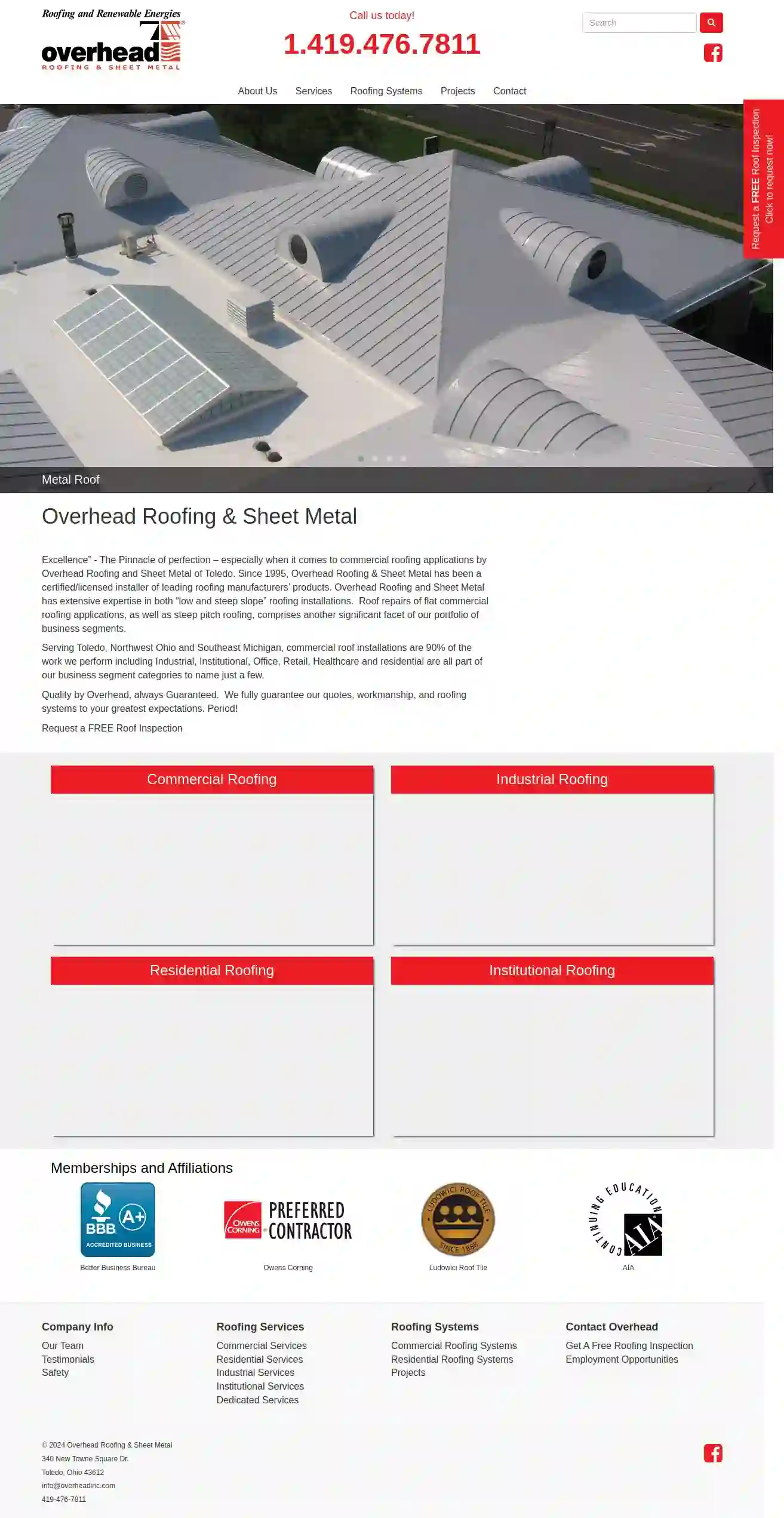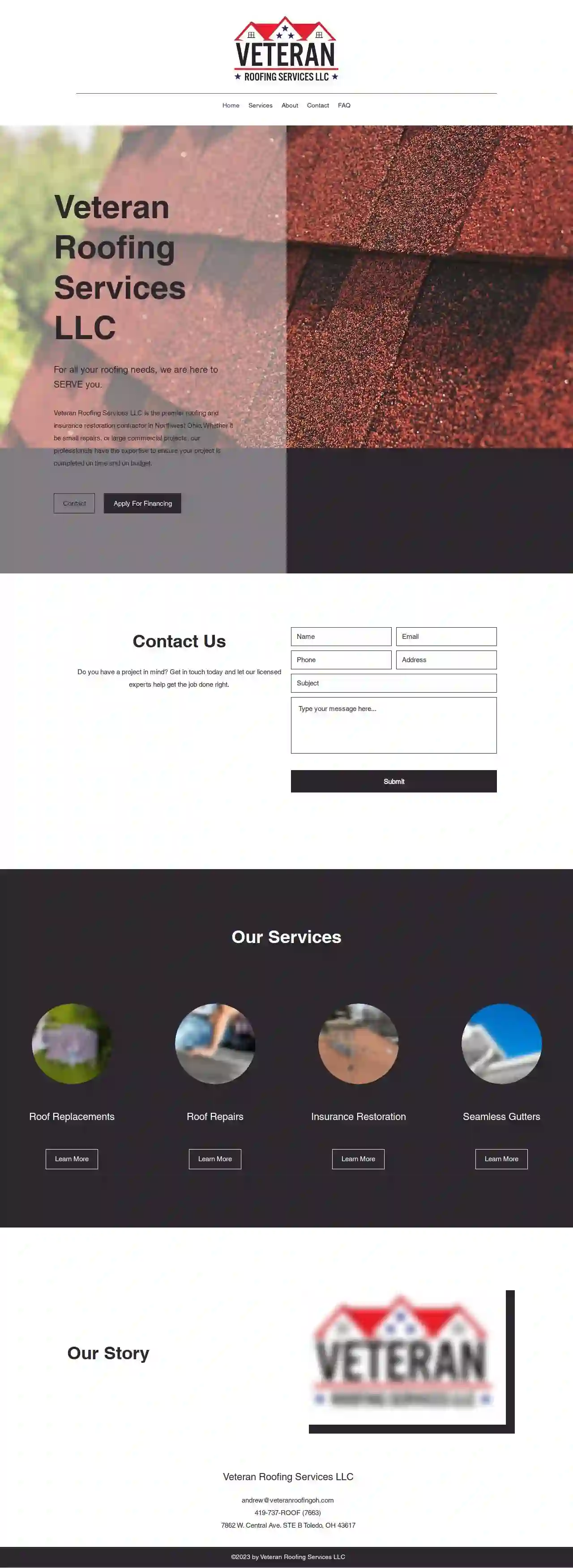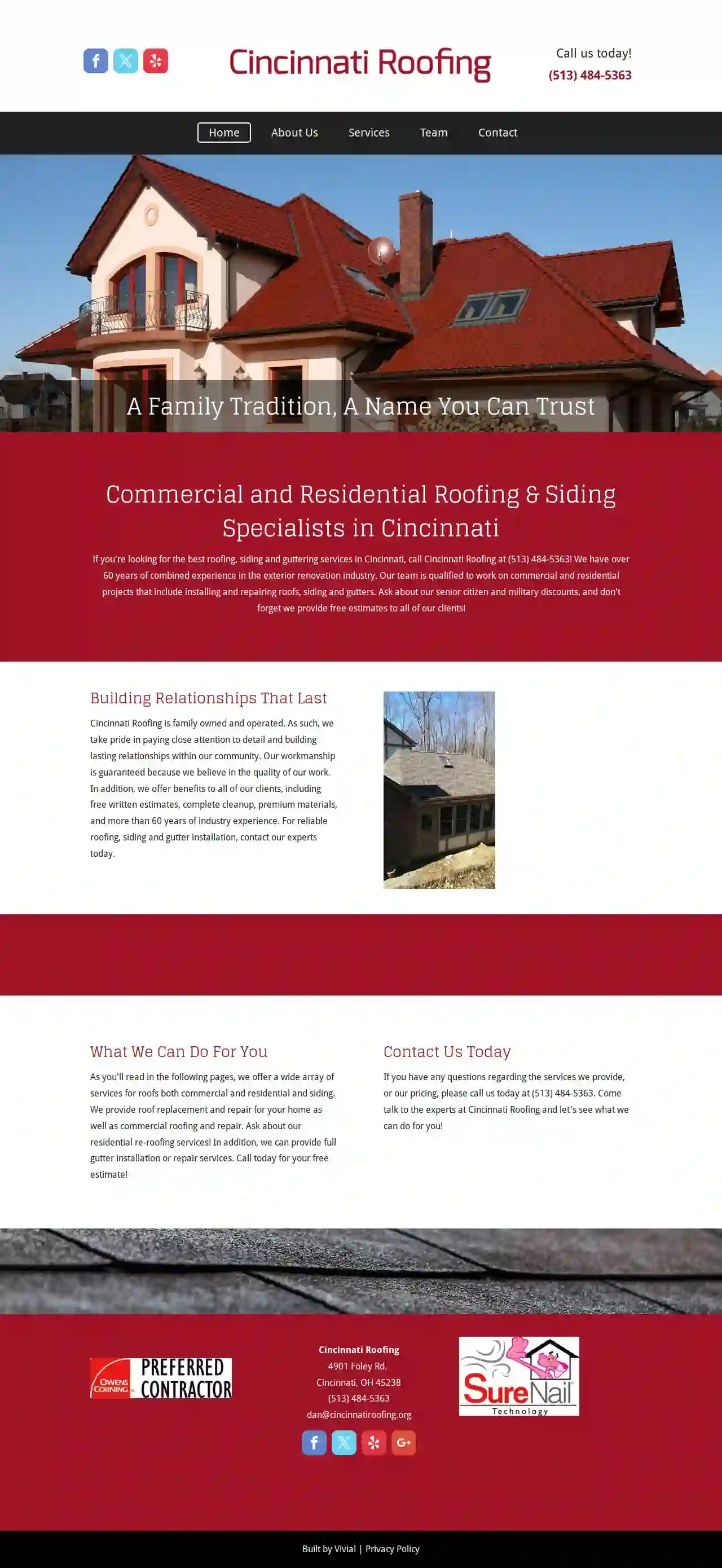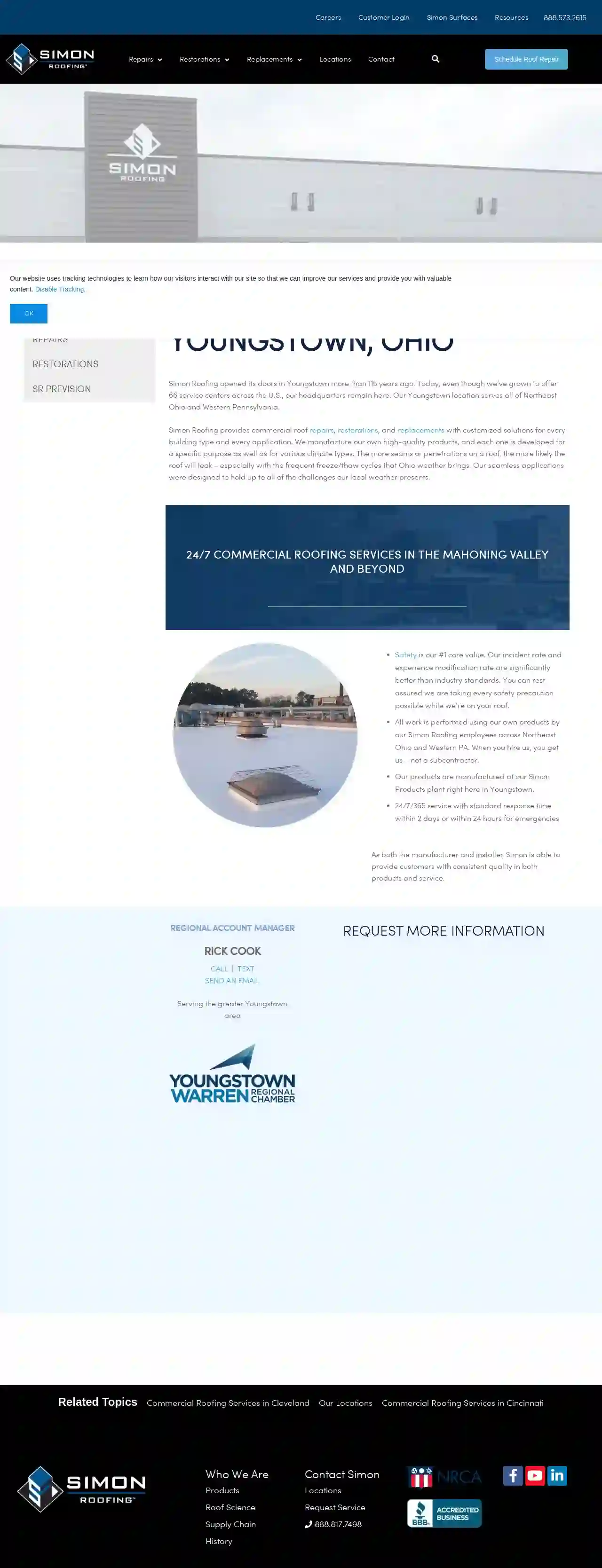Roofing Companies Findlay
Best Roofing Services in Findlay
Get 3 FREE Roofing Services quotes for your project today! Compare profiles, reviews, accreditations, portfolio, etc... and choose the best offer.

Banner Roofing & Remodeling
11 reviews1968 Kentucky Ave, Cincinnati, 45223, USBanner Roofing & Remodeling has been serving as a leading Cincinnati Roofing and Remodeling Contractor since 1990. I’m a fully-certified professional here to tackle everything from Roofing to the Remodeling of your Kitchen and Bathroom . I’m fueled by my commitment to excellence and go the extra mile to make sure my clients are completely satisfied with my work. Call me today and schedule a free consultation. Whether you want to renovate your existing space or add onto it, Banner Roofing & Remodeling is the right Roofing and Remodeling Contractor for you. My professional remodeling and installation services are among the best in Cincinnati area. At Banner Roofing & Remodeling, I take pride in my excellent workmanship, competitive fees and ability to deliver outstanding results. From coordinating projects to taking care of all the bureaucratic oversight, I guide my clients to satisfaction every step of the way. Call me today and see what I can do for you.
- Services
- Why Us?
- Our Team
- Gallery
Get Quote
ARMORVUE Home Exteriors
4.8123 reviews6610 Fairfield Dr. Suite A, Not Found, Northwood, 43619, USARMORVUE Home Exteriors is an industry leader in the Toledo, OH area for replacement windows, doors, roofs, and siding. Over the years, we have built our home exteriors company on a foundation of quality products, professionalism, and top-notch customer service throughout Northern Ohio. We care about our customers, and it’s important to us that we provide as much information as we can so you can make an educated decision about the windows and doors you choose for your home. Whether you are trying to decide on an entry door and patio door replacement or you need to have a complete roof replacement job done, we approach every project with your interests in the forefront of our minds. It’s that commitment to excellence that sets us apart from other siding, window, and roofing services in the Toledo, OH area.
- Services
- Why Us?
- Accreditations
- Our Team
- Testimonials
- Gallery
Get Quote
Overhead Roofing & Sheet Metal
51 reviews340 New Towne Square Dr., Toledo, 43612, USOverhead Roofing & Sheet Metal, Inc. is a trained and licensed/certified expert manufacturer's contractor for the installation of commercial and residential roofing products. Founded in 1995, the company is thriving under the management of fourth-generation family member, Mark Huss with the help of General Manager, Moody Talb. Serving Northwest Ohio and Southeast Michigan for decades, Overhead Roofing & Sheet Metal, Inc. is called on for an increasing number of residential, commercial, industrial and institutional roofing projects of multiple scopes and applications. With a commitment to quality and customer satisfaction, the company provides high-quality roofing products, installations and diversified services, operating with the utmost company integrity, fairness and honesty.
- Services
- Why Us?
- Accreditations
- Our Team
- Testimonials
- Gallery
Get Quote
Greater Dayton Roofing
51 reviewsDAYTON, USJOSH A ROOFING LLC is a team of experienced professionals proudly serving the Greater Dayton area. We specialize in providing assistance after storm damage or for general replacement needs. Our commitment is to supply high-quality roofing, gutter, and siding solutions to homeowners, ensuring their properties are protected from the elements. We understand the importance of your home and utilize the best materials and techniques to guarantee a long-lasting result. We offer a wide range of roofing options to suit your budget and style preferences. Our experts will help you choose the perfect roof for your home and install it to the highest standards. Our seamless gutters are designed to protect your home from water damage and come in various colors to match your home's exterior, available in aluminum, copper, and other materials. We also offer siding options designed to give your home a fresh new look and improve its insulation. Choose from vinyl, fiber cement, and wood siding in a variety of colors and styles. Why Choose Us? * **Experienced Professionals:** Our team of experts is highly skilled in roofing, gutter, siding, and window installation. We are knowledgeable, dedicated, and committed to providing the best service possible. * **High-Quality Materials:** We use only the best materials from top manufacturers in the industry. Our roofing, gutter, siding, and window options are designed to last for many years and protect your home from the elements. * **Affordable Prices:** We understand that home improvement projects can be expensive, which is why we offer competitive prices for our services. * **Satisfaction Guarantee:** We are committed to customer satisfaction and offer a satisfaction guarantee for all our services. If you are not completely satisfied with our work, we will do everything we can to make it right.
- Services
- Why Us?
- Gallery
Get Quote
All N All Roofing And Construction LLC
Cincinnati, USWelcome to All-N-All Roofing & Construction, Cincinnati’s Home for roofing, repair, and more! We strive to serve the Greater Cincinnati area’s commercial and residential roofing needs. All-N-All can install and repair all types of roofing, flat roofs, shingled roofs, and everything in-between. In addition, we offer almost any other type of construction, repair, and handyman services. No job is too big or small. Quality Assured isn’t just our motto, but the guiding principle on every job we do. See our Services page for a complete list of what we offer, or Contact Us with any questions or to request a quote. © Copyright 2017 · All-N-All Cincinnati Roofing & Construction LLC
- Services
- Why Us?
- Gallery
Get Quote
Veteran Roofing Services LLC
514 reviews7862 W. Central Ave. STE B, Toledo, 43617, USVeteran Roofing Services LLC is the premier roofing and insurance restoration contractor in Northwest Ohio. Whether it be small repairs, or large commercial projects, our professionals have the expertise to ensure your project is completed on time and on budget. Do you have a project in mind? Get in touch today and let our licensed experts help get the job done right.
- Services
- Why Us?
- Gallery
Get Quote
Cardinal Roofing And Renovations
59 reviewsDayton, USPrecision in every detail, quality in every service. At Cardinal Roofing and Renovations we are committed to providing the best possible service with the highest quality installations in roofing, siding, and exterior services. Our mission is to go above the standard and build long lasting relationships with our clients. Trust us with all of your home improvement needs! With over 20 years of experience in the roofing industry we pride ourselves on high quality craftsmanship. Whatever your needs, big or small – a repair, or a complete installation, we will assist you with the entire process.
- Services
- Why Us?
- Gallery
Get Quote
Tried and True Roofing
539 reviews123 Main Street, Denver, 80202, USTried and True Roofing is a professional company that provides premier roofing solutions in Denver, CO, and surrounding areas. Our experienced and reliable contractors offer full service for all your roofing needs. From our A+ BBB rating to our superb customer service, our Denver roofers always strive to do a phenomenal job, from inspection to a completed roof. Get in touch for a free quote! Why Choose Our Denver Roofers? We are committed to providing our clients with the highest quality roofing services at competitive prices. Our team of experienced roofers is dedicated to providing exceptional customer service and ensuring that your roofing project is completed to your satisfaction.
- Services
- Why Us?
- Accreditations
- Our Team
- Testimonials
- Gallery
Get Quote
Cincinnati Roofing
3.914 reviews4901 Foley Rd., Cincinnati, 45238, USCincinnati Roofing is a family-owned and operated business with over 60 years of combined experience in the exterior renovation industry. We specialize in providing high-quality, affordable roofing, siding, and gutter services for both commercial and residential clients in the Cincinnati area. We pride ourselves on building lasting relationships with our customers by paying close attention to detail and delivering exceptional workmanship. Our team is trained and insured to handle all types of roofing projects, from small repairs to complete roof replacements. We also offer a wide range of siding and gutter services, including installation, repair, and cleaning. At Cincinnati Roofing, we believe in transparency and providing our customers with all the information they need to make informed decisions. That's why we offer free written estimates, complete cleanup, premium materials, and a guarantee on all our work. We also offer senior citizen and military discounts to show our appreciation for our valued customers. Contact us today for a free consultation and let our experts help you protect your investment.
- Services
- Why Us?
- Gallery
Get Quote
Simon Roofing
4.36 reviewsYoungstown, USSimon Roofing opened its doors in Youngstown more than 115 years ago. Today, even though we’ve grown to offer 66 service centers across the U.S., our headquarters remain here. Our Youngstown location serves all of Northeast Ohio and Western Pennsylvania. Simon Roofing provides commercial roof repairs, restorations, and replacements with customized solutions for every building type and every application. We manufacture our own high-quality products, and each one is developed for a specific purpose as well as for various climate types. The more seams or penetrations on a roof, the more likely the roof will leak – especially with the frequent freeze/thaw cycles that Ohio weather brings. Our seamless applications were designed to hold up to all of the challenges our local weather presents. 24/7 COMMERCIAL ROOFING SERVICES IN THE MAHONING VALLEY AND BEYOND. Safety is our #1 core value. Our incident rate and experience modification rate are significantly better than industry standards. You can rest assured we are taking every safety precaution possible while we’re on your roof. All work is performed using our own products by our Simon Roofing employees across Northeast Ohio and Western PA. When you hire us, you get us – not a subcontractor. Our products are manufactured at our Simon Products plant right here in Youngstown. 24/7/365 service with standard response time within 2 days or within 24 hours for emergencies. As both the manufacturer and installer, Simon is able to provide customers with consistent quality in both products and service.
- Services
- Why Us?
- Our Team
- Gallery
Get Quote
Over 17,196+ Roofers onboarded
Our roofing contractors operate in Findlay & beyond!
Roofyng.com has curated and vetted Top Roofing Businesses in and around Findlay. Find a top & trustworthy contractor today.
Frequently Asked Questions About Roofing Companies
- Metal roofs: Reflect sunlight, reducing cooling costs.
- Tile roofs: Offer thermal mass, regulating temperature.
- Cool roofs: White or light-colored roofs with high solar reflectance.
- Green roofs: Vegetated roofs providing insulation and reducing heat absorption.
- Asphalt Shingles: Popular, affordable, available in various styles (3-tab, architectural, etc.)
- Metal Roofing: Durable, long-lasting, energy-efficient, available in panels, shingles, or tiles.
- Tile Roofing: Clay, concrete, or slate; known for longevity, durability, and aesthetic appeal.
- Flat Roofing: EPDM rubber, TPO, PVC, modified bitumen, or built-up roofing (BUR).
- Slate: Natural stone, extremely durable, expensive, requires expert installation.
- Wood Shakes or Shingles: Natural wood, aesthetically pleasing, requires regular maintenance.
- Choose Reflective Roofing Materials: Opt for light-colored shingles or metal roofing that reflects sunlight and reduces heat absorption.
- Install Proper Attic Insulation: Adequate insulation prevents heat loss in the winter and heat gain in the summer.
- Ensure Adequate Ventilation: Proper attic ventilation allows hot air to escape, reducing cooling costs and extending the lifespan of your roof.
- Consider a Radiant Barrier: In hot climates, a radiant barrier installed in the attic can reflect heat away from the roof, further reducing cooling needs.
What is a roof valley, and why is it important?
What are some energy-efficient roofing options?
What are the different types of roofing materials?
How can I make my new roof more energy-efficient?
What is a roof valley, and why is it important?
What are some energy-efficient roofing options?
- Metal roofs: Reflect sunlight, reducing cooling costs.
- Tile roofs: Offer thermal mass, regulating temperature.
- Cool roofs: White or light-colored roofs with high solar reflectance.
- Green roofs: Vegetated roofs providing insulation and reducing heat absorption.
What are the different types of roofing materials?
- Asphalt Shingles: Popular, affordable, available in various styles (3-tab, architectural, etc.)
- Metal Roofing: Durable, long-lasting, energy-efficient, available in panels, shingles, or tiles.
- Tile Roofing: Clay, concrete, or slate; known for longevity, durability, and aesthetic appeal.
- Flat Roofing: EPDM rubber, TPO, PVC, modified bitumen, or built-up roofing (BUR).
- Slate: Natural stone, extremely durable, expensive, requires expert installation.
- Wood Shakes or Shingles: Natural wood, aesthetically pleasing, requires regular maintenance.
How can I make my new roof more energy-efficient?
- Choose Reflective Roofing Materials: Opt for light-colored shingles or metal roofing that reflects sunlight and reduces heat absorption.
- Install Proper Attic Insulation: Adequate insulation prevents heat loss in the winter and heat gain in the summer.
- Ensure Adequate Ventilation: Proper attic ventilation allows hot air to escape, reducing cooling costs and extending the lifespan of your roof.
- Consider a Radiant Barrier: In hot climates, a radiant barrier installed in the attic can reflect heat away from the roof, further reducing cooling needs.